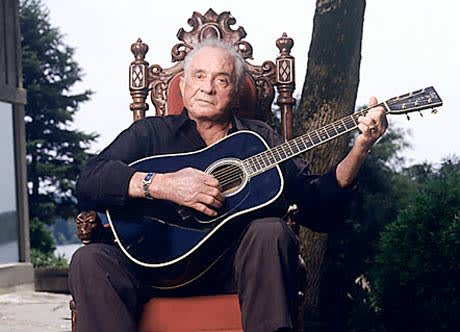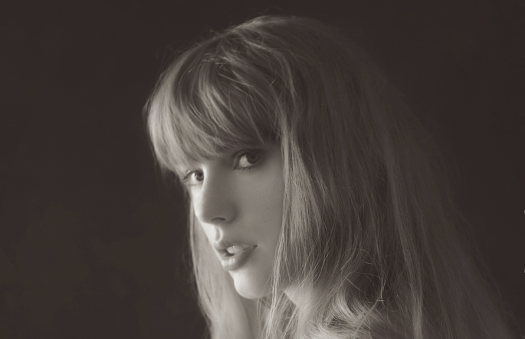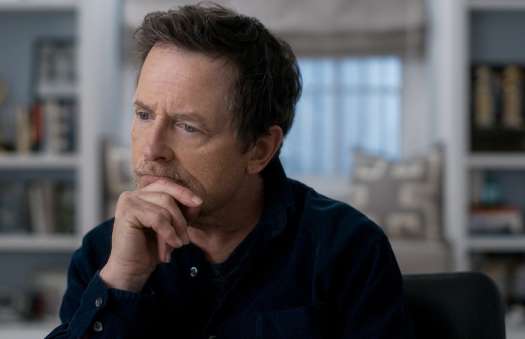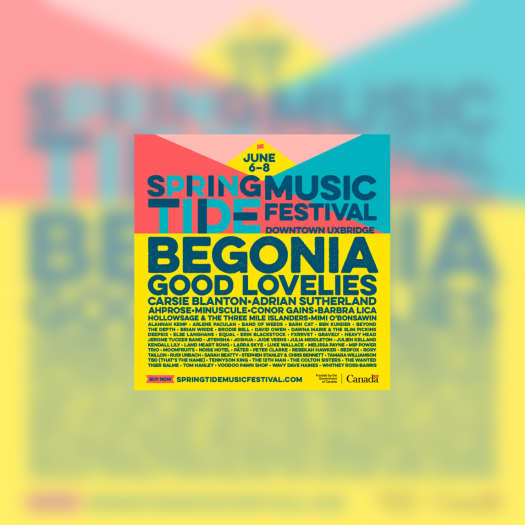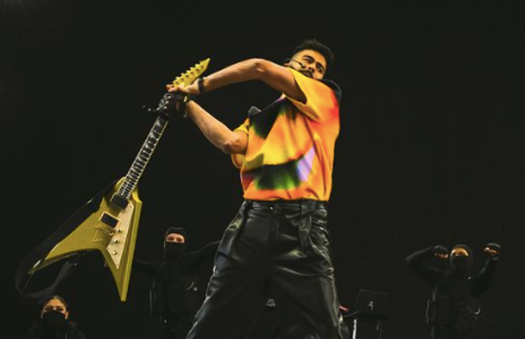Johnny Cash is cool. That can't be said for many sexagenarians who've made a living playing country and gospel tunes, but the Man In Black is undeniably so, a consensus that crosses genre and generation. He's a man of contradiction, who has battled the darkest demons, yet whose gaze, even from the gutter, has been directed to God. He has been a violent man, destroying countless hotel rooms and cars before rock stars even came to be. He's also a scholar of the Old West, and of the Gospels, a voracious reader and connoisseur of books and art. He has been a successful man æ at the peak of his career, in 1969, selling more records per month than the Beatles æ and yet from the mid-70s through the 80s, was largely forgotten. His body and his career have proved resistant, and both have come up off the mat when circumstances seemed hopeless.
1932-1949
J.R. Cash (his parents couldn't agree on a name at first, just initials) is born in 1932 in Kingsland, Arkansas, the fourth of five children to a cotton farming family. He first learns a host of traditional gospel songs from his mother, then radio becomes a huge influence. The entire Cash clan sings while they pick in the fields. In 1944, John's older brother Jack is killed in a farm accident at age 14. Jack was a man of God, destined for the priesthood and the greatest religious influence in Cash's young life. As a teenager, Cash's mother saves for singing lessons for her son; after three lessons, his teacher tells him to never take another lesson, and never change how he naturally sings.
1950
John R. graduates from high school, and after working a couple of industrial jobs, enlists in the Air Force. While stationed in Germany, he buys his first guitar, drinks alcohol for the first time, and forms his first band, an acoustic group called the Barbarians that plays in small bars and honky-tonks.
1954
Cash is discharged from the Air Force, and marries Vivian Liberto; they settle in Memphis, Tennessee, where he sells appliances door-to-door while trying to break into the music business. Meets and begins playing with Luther Perkins and Marshall Grant, who form his long-time backing band, the Tennessee Two. Gets his first break on a Memphis radio station where the trio plays a weekly 15 minute spot, which lasts about two months.
1955
Like Elvis before him, Johnny Cash camps out in front of Sam Phillips's legendary Sun Studios trying to catch a break. His real desire is to be a gospel singer, but Phillips won't bite, so Cash returns with "Hey Porter." Backed with "Cry Cry Cry," it becomes his first Sun single. In May, daughter (and future country star) Roseanne Cash is born. In December, releases "Folsom Prison Blues," which includes his meanest, and most famous line: "I shot a man in Reno/Just to watch him die."
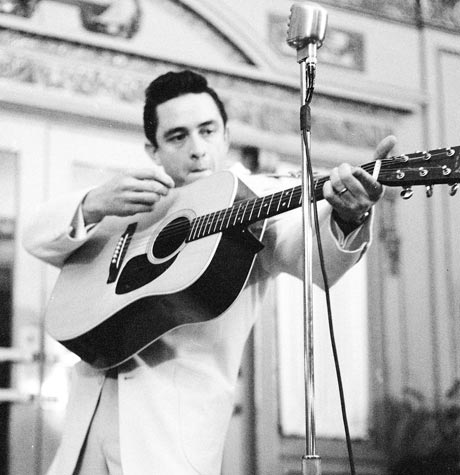 1956
1956
With a title inspired by Carl Perkins and a melody cribbed from a backwards-spooled tape recorder from his Air Force days, "I Walk the Line" becomes Cash's first number one hit, eventually selling over one million copies. In his 1997 autobiography, Cash, he writes that he's still angry that Sam Phillips never bought him a Cadillac to mark this occasion, a gift Phillips had given to both Elvis and Carl Perkins after they had huge, breakthrough success.
During a Carl Perkins recording session that features Jerry Lee Lewis on piano, Johnny Cash and Elvis Presley happen by Sun Studios. The nearly 40 takes recorded that day become famous as the "Million Dollar Quartet." Reports vary from many sources about the different artists' participation, including Cash's own recollections æ in his 1975 autobiography, The Man In Black, he claims it occurred in 1955, not '56, and at different times claims to sing on different songs.
1957
Achieves a lifelong dream when he performs on the Grand Ole Opry; eventually lands a regular spot on the Opry, which requires his return to Nashville every Saturday night for a performance.
On a late night drive through Florida on tour with singer Faron Young, Cash is offered amphetamines for the first time to help keep awake for the drive. From then on, the drug becomes an increasingly dominant presence in his life.
In November, although his contract with Sun Records is not up, Cash signs a secret agreement with Columbia Records that will begin when his Sun contract expires the following year. It proves a remarkable deal for Columbia, who avoid a very expensive bidding war for his services the next summer, as his star continues to rise.
1958
Sam Phillips, having already lost Presley, is bitter at the departure of Cash from Sun Records; the approximately 70 songs Cash recorded in three years are repackaged and released on more than 25 different albums in the ensuing years. Cash, for his part, feels he never got his financial due from Sun. His contract with Columbia Records allows him, for the first time, to pursue his lifelong interest in gospel music.
1959
Cash releases his first of many gospel records, Hymns by Johnny Cash. In addition to appearances on a host of variety shows, Cash begins making short dramatic appearances on popular C&W programs like Wagon Train.
1960
January 1, 1960, performs the first benefit concert for prison inmates, at San Quentin Penitentiary, something he will continue to do throughout his career.
Ride This Train is Cash's first concept album (one of the first ever), an historical narrative and songs concerning the American West.
1961
Having moved to California in part to break into movies, as Presley had, Cash performs his first dramatic part in a feature as a maniacal killer in 5 Minutes to Live (later released as Door to Door Maniac).
June Carter and several members of the legendary country act the Carter Family, join Johnny Cash's touring entourage, a package of several acts that would perform an entire show.
 1963
1963
Records what many consider to be Cash's signature song, "Ring of Fire," written by June Carter and Merle Kilgore and originally recorded by June's sister Anita.
1964
Records Bitter Tears, a concept album that reflects his long-standing interest in Native American life, that includes "The Ballad of Ira Hayes." Hayes was a Pima Indian who contributed to one of the most enduring moments of American military life when he helped raise the American flag at Iwo Jima; his reception upon his return was less than heroic. Country radio refuses to play the controversial song; Cash places a full-page ad in Billboard lambasting radio for their conservative politics and for being fraidy-cats.
His touring camper "Jesse" (after Jesse James), having survived several crashes, including destroying the porch of the Sahara Hotel in Las Vegas, meets its final, fiery end in California, when it overheats and set fire to some grass. While a stoned Cash fishes nearby to secure his alibi ("I didn't start that fire," he claims, "my truck did.") fire spreads up three different mountaintops, all part of a wildlife reserve for California condors and other endangered species. Cash becomes the only person the U.S. government has ever successfully sued for starting a forest fire, and he pays a fine of $165,000.
1965
Cash is arrested carrying hundreds of pills from Mexico into Texas; though pills are at this point not vilified in American life as narcotics, and Cash is regularly supplied by various doctors, he is incarcerated for having acquired them illegally. (The cops busted the trip suspecting he was carrying heroin.) He spends the night in jail; the bust is last straw in his marriage to Vivian.
He makes a stoned appearance at the Grand Ole Opry and before the show even begins, in a fit over a faulty mic stand, drags the stand across the footlights of the stage, smashing many of them. He is told the Opry won't be needing his services any longer.
1966
Growing drug dependency having put a serious strain on his marriage, one day in 1966 leaves for a tour and essentially never comes back. Files for divorce shortly after. When he starts missing shows due to increased dependency, Cash begins a long fight to kick his addictions.
1967
Cash is booked for public drunkenness and spends the night in jail, leading (again) to a renewed decision to get sober. He kicks with the help of June Carter, whose help and devotion has become an increasing influence.
1968
"Hello, I'm Johnny Cash." Newly sober and rejuvenated, records famed live record Johnny Cash At Folsom Prison. Starts playing make-up shows for ones he missed due to addiction. February 1, on stage in London, ON, Johnny proposes to June Carter; they're married March 1.
Long-time Tennessee Two guitarist Luther Perkins dies in a house fire. Bob Wootton joins the band as a guitarist; in 1974, he'll become a member of the family as well when he marries June's sister Anita.
1969
1969 is the greatest year of Cash's career. He sells six-and-a-half million records, more than any individual artist had (at that time) ever sold in one year. Records Johnny Cash At San Quentin, which surpasses Folsom Prison in sales, and "A Boy Named Sue" becomes a number 1 hit. In June 1969, begins broadcasting The Johnny Cash Show on ABC; guests include Bob Dylan in an extremely rare network TV appearance. The unorthodox variety program, which features a wide range of performers, runs until 1971.
1971.
Having won a Grammy Award for writing the liner notes for Folsom Prison, Cash wins another for the liner notes to Bob Dylan's Nashville Skyline, on which he appears as a guest.
1970
Cash's only son John Carter Cash is born.
1972
Pays tribute to the legacy of American life on yet another concept record, America: A 200-Year Salute In Story and Song. Opens The House of Cash, a recording studio and offices to deal with all things Cash.
1974
John and June Carter finance, produce and assist in directing Gospel Road, a film about the life of Christ. The film is still distributed by Billy Graham's Crusade, an organisation with which the Cash's have a long-standing relationship.
1975
Publishes his first autobiography, The Man In Black (now out of print). It eventually sells an estimated 1.3 million copies.
1976
"One Piece At A Time" becomes one of his last hits for a long period. Now considered out of step with country radio, Cash's radio play and cultural presence declines, despite the fact that his back catalogue and shows continue to sell well.
1980
At the age of 48, becomes the youngest living inductee into the Country Music Hall of Fame. Appears on The Muppet Show as himself.
1981
While on stage in Stuttgart, Germany, Cash is surprised by Carl Perkins and Jerry Lee Lewis. The live recording of that spontaneous performance is released as The Survivors.
1983
Cash is attacked on his own game farm by an ostrich; he breaks five ribs and succumbs again to the lure of pills. Cash is hospitalised for internal bleeding due to the corrosive effects of drug abuse; ironically, stomach surgery leads to morphine, and his renewed descent into addiction brings Cash very close to death. He enters the Betty Ford Center shortly thereafter.
1985
Appears as John Brown in TV mini-series North and South. Continues his writing career by publishing a novel, The Man In White, based on the life of Paul the Apostle. Teams up with Waylon Jennings, Willie Nelson and Kris Kristofferson in the very successful quartet the Highwayman.
1986
Records ten songs with Carl Perkins, Roy Orbison and Jerry Lee Lewis as the Sun Records' Class of '55. After more than 25 years, Cash leaves Columbia, signing a deal with Mercury/Polygram.
1992
Cash is inducted into the Rock'n'Roll Hall of Fame, becoming the only person ever inducted in R&R, Country and Songwriters Halls of Fame.
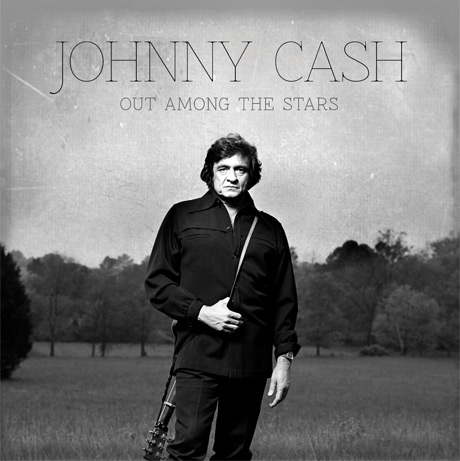 1993
1993
After an unfruitful series of albums for Mercury, Cash signs with acclaimed rock and hip-hop producer Rick Rubin's American Records label.
1994
His Rick Rubin-produced American Recordings provides a career resurgence, introducing Cash to a whole new audience. Recorded in Cash's cabin and Rubin's living room, the simplicity of it æ Cash, a guitar, and favourite songs æ is the essence of its appeal. On the cover of the album, Cash is pictured with a dog at each side, one white, one black, that symbolise the struggle he's faced as he's "walked the line" throughout his life.
1996
Receives Kennedy Center Honors for significant contributions to his nation's culture. Releases Unchained, also produced by Rubin, and featuring Tom Petty and the Heartbreakers as his backing band; it includes a haunting version of Soundgarden's "Rusty Cage" that furthers his cross-generational appeal. Fights off a life-threatening bout with double pneumonia.
1997
Announces he's been diagnosed with a rare form of Parkinson's disease. Appears as "Coyote" on The Simpsons episode "El Viaje Misterioso de Nuestro Jomer (The Mysterious Voyage of Our Homer)." Publishes his second story of his life, the elliptical Cash: An Autobiography; the main character in Nick Hornby's High Fidelity claims it's the best book ever written.
2000
Sony releases a three-CD box set, Love, God, Murder. The thematically organised CDs, chosen by Cash himself, are his favourite themes, and include some rare and unreleased material. Liner notes are provided by June Carter Cash (Love), Bono (God) and Quentin Tarantino (Murder).
In October, Cash announces that his 1997 diagnosis for Shy-Drager Syndrome was in fact incorrect (otherwise, he would be dead by now), and that he does not, in fact, have Parkinson's either.
The Man In Black releases American III: Solitary Man, a stunning collection of originals and reinterpreted songs. His cultural cross-pollination continues, singing songs by Tom Petty, U2, Neil Diamond, Will Oldham and Nick Cave. Guests on the album include Oldham, Petty, Merle Haggard, Sheryl Crow, and always by his side, June Carter Cash. It also features a version of "That Lucky Old Sun (Just Rolls Around Heaven All Day)," a song with which he won a talent contest in his youth.
2001
Johnny Cash's mysterious health problems continue when it is announced that he suffers from autonomic neuropathy, not in fact a disease, but a group of symptoms affecting the central nervous system. While currently vacationing at his winter home in Jamaica, plans are afoot for another Rubin produced follow-up to Solitary Man. "I wouldn't trade my future for anyone's," he writes in that album's liner notes. "The future is not questionable, but for me it is a path of light."
1932-1949
J.R. Cash (his parents couldn't agree on a name at first, just initials) is born in 1932 in Kingsland, Arkansas, the fourth of five children to a cotton farming family. He first learns a host of traditional gospel songs from his mother, then radio becomes a huge influence. The entire Cash clan sings while they pick in the fields. In 1944, John's older brother Jack is killed in a farm accident at age 14. Jack was a man of God, destined for the priesthood and the greatest religious influence in Cash's young life. As a teenager, Cash's mother saves for singing lessons for her son; after three lessons, his teacher tells him to never take another lesson, and never change how he naturally sings.
1950
John R. graduates from high school, and after working a couple of industrial jobs, enlists in the Air Force. While stationed in Germany, he buys his first guitar, drinks alcohol for the first time, and forms his first band, an acoustic group called the Barbarians that plays in small bars and honky-tonks.
1954
Cash is discharged from the Air Force, and marries Vivian Liberto; they settle in Memphis, Tennessee, where he sells appliances door-to-door while trying to break into the music business. Meets and begins playing with Luther Perkins and Marshall Grant, who form his long-time backing band, the Tennessee Two. Gets his first break on a Memphis radio station where the trio plays a weekly 15 minute spot, which lasts about two months.
1955
Like Elvis before him, Johnny Cash camps out in front of Sam Phillips's legendary Sun Studios trying to catch a break. His real desire is to be a gospel singer, but Phillips won't bite, so Cash returns with "Hey Porter." Backed with "Cry Cry Cry," it becomes his first Sun single. In May, daughter (and future country star) Roseanne Cash is born. In December, releases "Folsom Prison Blues," which includes his meanest, and most famous line: "I shot a man in Reno/Just to watch him die."
 1956
1956 With a title inspired by Carl Perkins and a melody cribbed from a backwards-spooled tape recorder from his Air Force days, "I Walk the Line" becomes Cash's first number one hit, eventually selling over one million copies. In his 1997 autobiography, Cash, he writes that he's still angry that Sam Phillips never bought him a Cadillac to mark this occasion, a gift Phillips had given to both Elvis and Carl Perkins after they had huge, breakthrough success.
During a Carl Perkins recording session that features Jerry Lee Lewis on piano, Johnny Cash and Elvis Presley happen by Sun Studios. The nearly 40 takes recorded that day become famous as the "Million Dollar Quartet." Reports vary from many sources about the different artists' participation, including Cash's own recollections æ in his 1975 autobiography, The Man In Black, he claims it occurred in 1955, not '56, and at different times claims to sing on different songs.
1957
Achieves a lifelong dream when he performs on the Grand Ole Opry; eventually lands a regular spot on the Opry, which requires his return to Nashville every Saturday night for a performance.
On a late night drive through Florida on tour with singer Faron Young, Cash is offered amphetamines for the first time to help keep awake for the drive. From then on, the drug becomes an increasingly dominant presence in his life.
In November, although his contract with Sun Records is not up, Cash signs a secret agreement with Columbia Records that will begin when his Sun contract expires the following year. It proves a remarkable deal for Columbia, who avoid a very expensive bidding war for his services the next summer, as his star continues to rise.
1958
Sam Phillips, having already lost Presley, is bitter at the departure of Cash from Sun Records; the approximately 70 songs Cash recorded in three years are repackaged and released on more than 25 different albums in the ensuing years. Cash, for his part, feels he never got his financial due from Sun. His contract with Columbia Records allows him, for the first time, to pursue his lifelong interest in gospel music.
1959
Cash releases his first of many gospel records, Hymns by Johnny Cash. In addition to appearances on a host of variety shows, Cash begins making short dramatic appearances on popular C&W programs like Wagon Train.
1960
January 1, 1960, performs the first benefit concert for prison inmates, at San Quentin Penitentiary, something he will continue to do throughout his career.
Ride This Train is Cash's first concept album (one of the first ever), an historical narrative and songs concerning the American West.
1961
Having moved to California in part to break into movies, as Presley had, Cash performs his first dramatic part in a feature as a maniacal killer in 5 Minutes to Live (later released as Door to Door Maniac).
June Carter and several members of the legendary country act the Carter Family, join Johnny Cash's touring entourage, a package of several acts that would perform an entire show.
 1963
1963 Records what many consider to be Cash's signature song, "Ring of Fire," written by June Carter and Merle Kilgore and originally recorded by June's sister Anita.
1964
Records Bitter Tears, a concept album that reflects his long-standing interest in Native American life, that includes "The Ballad of Ira Hayes." Hayes was a Pima Indian who contributed to one of the most enduring moments of American military life when he helped raise the American flag at Iwo Jima; his reception upon his return was less than heroic. Country radio refuses to play the controversial song; Cash places a full-page ad in Billboard lambasting radio for their conservative politics and for being fraidy-cats.
His touring camper "Jesse" (after Jesse James), having survived several crashes, including destroying the porch of the Sahara Hotel in Las Vegas, meets its final, fiery end in California, when it overheats and set fire to some grass. While a stoned Cash fishes nearby to secure his alibi ("I didn't start that fire," he claims, "my truck did.") fire spreads up three different mountaintops, all part of a wildlife reserve for California condors and other endangered species. Cash becomes the only person the U.S. government has ever successfully sued for starting a forest fire, and he pays a fine of $165,000.
1965
Cash is arrested carrying hundreds of pills from Mexico into Texas; though pills are at this point not vilified in American life as narcotics, and Cash is regularly supplied by various doctors, he is incarcerated for having acquired them illegally. (The cops busted the trip suspecting he was carrying heroin.) He spends the night in jail; the bust is last straw in his marriage to Vivian.
He makes a stoned appearance at the Grand Ole Opry and before the show even begins, in a fit over a faulty mic stand, drags the stand across the footlights of the stage, smashing many of them. He is told the Opry won't be needing his services any longer.
1966
Growing drug dependency having put a serious strain on his marriage, one day in 1966 leaves for a tour and essentially never comes back. Files for divorce shortly after. When he starts missing shows due to increased dependency, Cash begins a long fight to kick his addictions.
1967
Cash is booked for public drunkenness and spends the night in jail, leading (again) to a renewed decision to get sober. He kicks with the help of June Carter, whose help and devotion has become an increasing influence.
1968
"Hello, I'm Johnny Cash." Newly sober and rejuvenated, records famed live record Johnny Cash At Folsom Prison. Starts playing make-up shows for ones he missed due to addiction. February 1, on stage in London, ON, Johnny proposes to June Carter; they're married March 1.
Long-time Tennessee Two guitarist Luther Perkins dies in a house fire. Bob Wootton joins the band as a guitarist; in 1974, he'll become a member of the family as well when he marries June's sister Anita.
1969
1969 is the greatest year of Cash's career. He sells six-and-a-half million records, more than any individual artist had (at that time) ever sold in one year. Records Johnny Cash At San Quentin, which surpasses Folsom Prison in sales, and "A Boy Named Sue" becomes a number 1 hit. In June 1969, begins broadcasting The Johnny Cash Show on ABC; guests include Bob Dylan in an extremely rare network TV appearance. The unorthodox variety program, which features a wide range of performers, runs until 1971.
1971.
Having won a Grammy Award for writing the liner notes for Folsom Prison, Cash wins another for the liner notes to Bob Dylan's Nashville Skyline, on which he appears as a guest.
1970
Cash's only son John Carter Cash is born.
1972
Pays tribute to the legacy of American life on yet another concept record, America: A 200-Year Salute In Story and Song. Opens The House of Cash, a recording studio and offices to deal with all things Cash.
1974
John and June Carter finance, produce and assist in directing Gospel Road, a film about the life of Christ. The film is still distributed by Billy Graham's Crusade, an organisation with which the Cash's have a long-standing relationship.
1975
Publishes his first autobiography, The Man In Black (now out of print). It eventually sells an estimated 1.3 million copies.
1976
"One Piece At A Time" becomes one of his last hits for a long period. Now considered out of step with country radio, Cash's radio play and cultural presence declines, despite the fact that his back catalogue and shows continue to sell well.
1980
At the age of 48, becomes the youngest living inductee into the Country Music Hall of Fame. Appears on The Muppet Show as himself.
1981
While on stage in Stuttgart, Germany, Cash is surprised by Carl Perkins and Jerry Lee Lewis. The live recording of that spontaneous performance is released as The Survivors.
1983
Cash is attacked on his own game farm by an ostrich; he breaks five ribs and succumbs again to the lure of pills. Cash is hospitalised for internal bleeding due to the corrosive effects of drug abuse; ironically, stomach surgery leads to morphine, and his renewed descent into addiction brings Cash very close to death. He enters the Betty Ford Center shortly thereafter.
1985
Appears as John Brown in TV mini-series North and South. Continues his writing career by publishing a novel, The Man In White, based on the life of Paul the Apostle. Teams up with Waylon Jennings, Willie Nelson and Kris Kristofferson in the very successful quartet the Highwayman.
1986
Records ten songs with Carl Perkins, Roy Orbison and Jerry Lee Lewis as the Sun Records' Class of '55. After more than 25 years, Cash leaves Columbia, signing a deal with Mercury/Polygram.
1992
Cash is inducted into the Rock'n'Roll Hall of Fame, becoming the only person ever inducted in R&R, Country and Songwriters Halls of Fame.
 1993
1993 After an unfruitful series of albums for Mercury, Cash signs with acclaimed rock and hip-hop producer Rick Rubin's American Records label.
1994
His Rick Rubin-produced American Recordings provides a career resurgence, introducing Cash to a whole new audience. Recorded in Cash's cabin and Rubin's living room, the simplicity of it æ Cash, a guitar, and favourite songs æ is the essence of its appeal. On the cover of the album, Cash is pictured with a dog at each side, one white, one black, that symbolise the struggle he's faced as he's "walked the line" throughout his life.
1996
Receives Kennedy Center Honors for significant contributions to his nation's culture. Releases Unchained, also produced by Rubin, and featuring Tom Petty and the Heartbreakers as his backing band; it includes a haunting version of Soundgarden's "Rusty Cage" that furthers his cross-generational appeal. Fights off a life-threatening bout with double pneumonia.
1997
Announces he's been diagnosed with a rare form of Parkinson's disease. Appears as "Coyote" on The Simpsons episode "El Viaje Misterioso de Nuestro Jomer (The Mysterious Voyage of Our Homer)." Publishes his second story of his life, the elliptical Cash: An Autobiography; the main character in Nick Hornby's High Fidelity claims it's the best book ever written.
2000
Sony releases a three-CD box set, Love, God, Murder. The thematically organised CDs, chosen by Cash himself, are his favourite themes, and include some rare and unreleased material. Liner notes are provided by June Carter Cash (Love), Bono (God) and Quentin Tarantino (Murder).
In October, Cash announces that his 1997 diagnosis for Shy-Drager Syndrome was in fact incorrect (otherwise, he would be dead by now), and that he does not, in fact, have Parkinson's either.
The Man In Black releases American III: Solitary Man, a stunning collection of originals and reinterpreted songs. His cultural cross-pollination continues, singing songs by Tom Petty, U2, Neil Diamond, Will Oldham and Nick Cave. Guests on the album include Oldham, Petty, Merle Haggard, Sheryl Crow, and always by his side, June Carter Cash. It also features a version of "That Lucky Old Sun (Just Rolls Around Heaven All Day)," a song with which he won a talent contest in his youth.
2001
Johnny Cash's mysterious health problems continue when it is announced that he suffers from autonomic neuropathy, not in fact a disease, but a group of symptoms affecting the central nervous system. While currently vacationing at his winter home in Jamaica, plans are afoot for another Rubin produced follow-up to Solitary Man. "I wouldn't trade my future for anyone's," he writes in that album's liner notes. "The future is not questionable, but for me it is a path of light."
